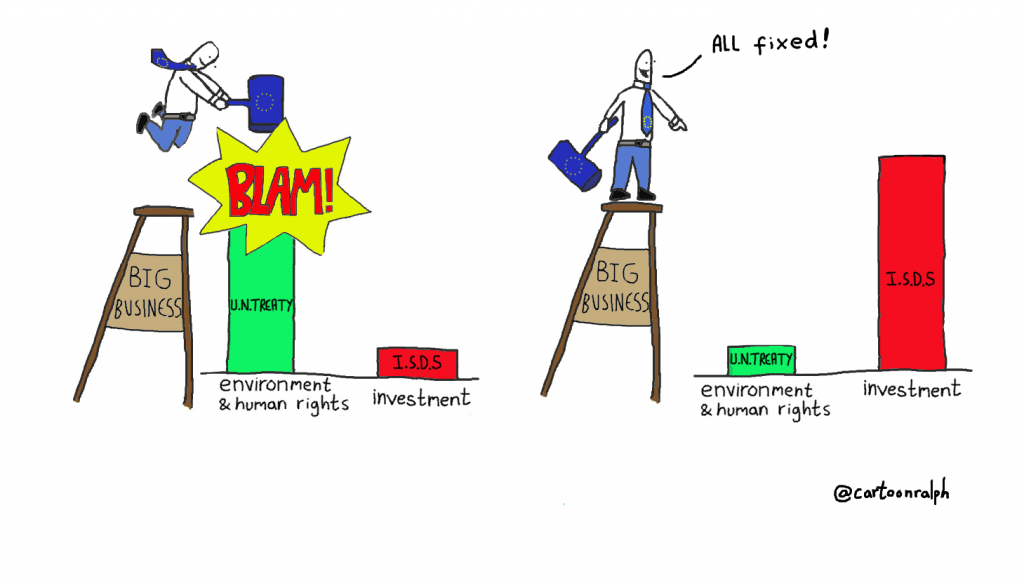This week, world leaders will meet at the United Nations in Geneva to negotiate a historic international treaty to ensure companies respect human rights and the environment in their global operations – the UN Treaty on Business and Human Rights. Representatives of the European Union will be attending the opening and closing session, but will not participating in discussions on the content of the treaty text. Why this abstention when we are talking about protecting people’s rights against damaging corporations, about giving victims of corporate abuse access to justice?
‘We do not shy away from binding norms when they are needed’, says @EU_UNGeneva. So, walk the walk and don’t remain silent during the rest of the week. We need a #BindingTreaty now, voluntary measures are not enough to #StopCorporateImpunity #EU4UNtreaty pic.twitter.com/ZI9t7xLO0N
— Friends of the Earth (@foeeurope) October 15, 2018
The European Union and its Member States are important actors when it comes to shaping globalisation. But as our new briefing analyses, the EU has been playing a double role in this process, designing several treaties that give corporations extraordinary powers while hindering efforts to hold these very same companies accountable.
This double agenda is exemplified by the EU’s actions in two areas: its reluctance to support binding and enforceable rights for citizens through an UN Treaty, while at the same time expanding and entrenching a system of legally binding and enforceable investor rights and privileges that grants corporations power over governments and communities.
Ike Teuling, corporate accountability campaigner at Friends of the Earth Europe said:
The investor rights system enables European companies to keep wrecking human rights and damaging communities everywhere around the globe. Victims of corporate abuse have no access to justice while companies have all kinds of VIP rights through trade deals. Citizens need a Binding Treaty now, and the EU should take its fair share of responsibility to finally put people over profit
The legal basis for achieving such a turnaround is now in the hands of Member states in Geneva. What is needed now is a reversal of political priorities, by putting human rights and environmental protection ahead of corporate interests and profits.







